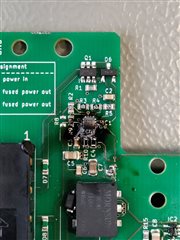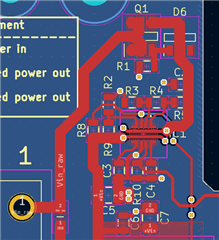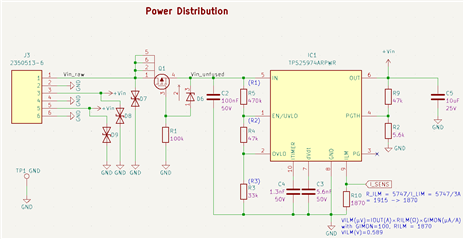Hello,
We would like to use eFuses in our future products.
We have started to evaluate the use of an eFuse in a PCB design. Unfortunately, we have not been able to get the eFuse to work reliably. Instead, the eFuse caught fire when switching loads at 12 volts and 4 amps.
We use a DC/DC converter with a 220µF capacitor and a 330µH induction coil as the load.
We added a Schottky diode to the output with no effect. I know that the design of the board is not optimal in terms of heat dissipation. But is it possible that the fuse is getting so hot too quickly that it can no longer switch off?
Any help is welcome!
Is send you the schematic, layout and a picture of the burned fuse.




